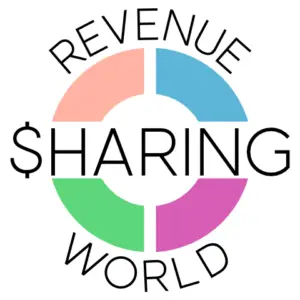Navigating the vast world of online business can be an overwhelming endeavor, especially when trying to decide between affiliate marketing and freelancing. These two models are wildly popular, with affiliate marketing offering the potential for passive income and freelancing boasting active earnings right off the bat.
This article aims to demystify these concepts, detailing their key differences, similarities, advantages, and drawbacks to help you make a well-informed choice. Ready for an enlightening ride into the exciting universe of digital self-employment? Let’s dive in!
Key Takeaways
- Affiliate marketing involves promoting products and earning commissions based on sales or leads, while freelancing entails providing services to businesses on a project or contract basis.
- Affiliate marketing offers passive income potential and the flexibility to work remotely, but earnings are not guaranteed and there are no job benefits.
- Freelancing allows for independence, higher earnings potential, and the ability to choose projects that align with personal interests and skills. However, income uncertainty and self-motivation are challenges.
Understanding Affiliate Marketing

Affiliate marketing is an online business model that involves promoting products or services to earn a commission based on the referred sales or leads.
Definition and Functionality
Affiliate marketing is about selling other people’s products. You do this using a unique link called an affiliate link. Each time someone buys through your link, you earn money. This money is your commission.
To start, choose the product you want to sell and get your affiliate link from the product owner or an affiliate network like CJ.com. Next, share this link in ways that will reach many people such as blogs, email lists or YouTube videos.
The more sales made through your link, the more money you make!
How to Start Affiliate Marketing
Starting affiliate marketing is simple. First, choose your platform. You can use a blog or a YouTube channel. Next, pick your niche. This should be a topic you know well and enjoy talking about. After that, join an affiliate program. Amazon Associates is a good start for beginners. Now, create content around the products in your niche. This could be blog posts or YouTube videos. Then, promote your affiliate products within this content. Make sure to include your affiliate link so you get the credit for any sales made through your link. To attract more visitors to your page, learn about SEO and use it to improve your website’s visibility on search engines like Google.
- Choose where you will promote the products.
- Pick a topic you are passionate about.
- Join an affiliate network like Amazon Associates.
- Create useful and interesting content around this topic.
- Include the affiliate links in this content.
- Learn about SEO to drive traffic to your platform.
Pros and Cons of Affiliate Marketing
To truly understand the value of affiliate marketing, let’s delve into its advantages and drawbacks.
| Pros | Cons |
|---|---|
| Low Startup Costs: Affiliates are mainly required to set up a website or social media presence, making it a cost-effective option. | Income Uncertainty: Earnings are not guaranteed and depend on how well the affiliate’s audience responds to the promoted products. |
| Flexibility to work remotely: Affiliates can work from anywhere, as long as they have access to the internet. | No Benefits or Retirement Planning: Unlike traditional jobs, affiliate marketing does not come with benefits like healthcare or retirement plans. |
| Passive Income Potential: With the right strategies, affiliates can earn money while they sleep through the commission from sales made. | Requires Self-Motivation: To succeed in affiliate marketing, one needs to be self-driven and dedicated. |
While affiliate marketing has distinctive benefits such as low start-up costs and the opportunity to work remotely, it also has downsides such as income uncertainty and the lack of job benefits. It requires a considerable amount of self-motivation and accountability to thrive in this field.
Understanding Freelancing

Freelancing refers to the practice of offering services to businesses on a project or contract basis, allowing individuals to work independently and choose their own clients.
Types of Freelance Work
There are many types of work you can do as a freelancer. Here’s a list:
- Web design: You build websites for businesses or people.
- Copywriting: You write words for ads, websites and more.
- Search Engine Optimization: You help a website show up higher in search results.
- Graphic Design: You make logos, brochures, and other designs.
- Social Media Marketing: You run social media accounts for a business or person.
- Web Development: You code the back end of websites or apps.
- Ecommerce: You help businesses sell things online.
- Data Analytics: You take big sets of data and make them easy to understand.
- Video Production: You make videos for YouTube, ads, or personal projects.
- Accounting and Bookkeeping: You keep track of money in and out for a business or person.
- IT Support : Help people fix their computer problems.
- App Development : Create new apps for phones or computers.
How to Become a Freelancer
To become a freelancer, follow these steps:
- Identify your skills: Think about what you’re good at and what services you can offer to businesses or individuals.
- Choose your niche: Find a specific area within your skill set that you’re passionate about and specialize in it. This will help you stand out from the competition.
- Create an online presence: Set up a professional website or create profiles on freelance platforms like UpWork or Fiverr. Showcase your skills, experience, and portfolio of work.
- Market yourself: Use social media, online communities, and networking events to promote yourself and connect with potential clients. Share your expertise through blog posts or YouTube videos to establish yourself as an authority in your niche.
- Build a client base: Start by reaching out to friends, family, and acquaintances who might need your services. Ask for referrals and testimonials to build credibility.
- Set your rates: Research market rates for freelancers in your industry and determine how much you want to charge for your services. Consider factors like experience, time commitment, and the value you provide.
- Negotiate contracts: When working with clients, clearly define project details, deadlines, deliverables, and payment terms in a written contract. Make sure both parties are clear on expectations before starting any work.
- Deliver exceptional work: Always strive to exceed client expectations by delivering high-quality work on time. This will help you build a positive reputation and secure repeat business.
Benefits and Drawbacks of Freelancing
Freelancing comes with its own set of benefits and drawbacks that are important to consider for anyone considering this career path.
| Benefits of Freelancing | Drawbacks of Freelancing |
|---|---|
| Flexibility to work from anywhere, offering a better work-life balance. | Income uncertainty is a constant concern as earnings can vary greatly from month to month. |
| Contains potential for higher earnings, as freelancers often earn more than traditional employees. | Freelancers are responsible for making their own quarterly tax payments, which may be unfamiliar and challenging. |
| Allows for independence and the ability to choose projects that align with personal interests and skills. | There are no provided benefits or assistance with retirement planning. |
| Freelancers are their own boss, giving them more control over their workload, clients, and career direction. | Staying motivated and keeping oneself accountable can be challenging without the structure of a traditional employment environment. |
Awareness of these pros and cons can help you make an informed decision about whether freelancing is the right choice for you.
Key Differences Between Affiliate Marketing and Freelancing

Affiliate marketing relies on promoting products and earning commissions, while freelancing involves providing services to businesses. Learn more about the distinct differences between these two online business models.
Scalability
Scalability is an important factor to consider when comparing affiliate marketing and freelancing. In affiliate marketing, you have the potential for high scalability because you can earn commissions from multiple sources without being limited by the number of clients or projects.
This means that as your audience and traffic grow, your income can increase significantly. On the other hand, freelancing may not be as scalable because it requires you to invest time and effort in each individual project or client.
You need to constantly find new clients and complete new projects to continue earning income. So if scalability is important to you, affiliate marketing might be a better option.
Contractual Obligations
Affiliate marketing and freelancing have different contractual obligations. As an affiliate marketer, you don’t have any direct contracts with businesses or clients. Instead, you join an affiliate network like CJ.com and promote products using your unique affiliate link.
When people make a purchase through your link, you earn a commission. You don’t have to worry about things like client deadlines or specific deliverables.
On the other hand, freelancers often work on a project basis or contract basis with specific clients. This means they have more direct contractual obligations and responsibilities.
Freelancers need to meet client expectations, complete tasks within specified timelines, and ensure they deliver high-quality work according to the agreed-upon terms.
Passive vs Active Income
Passive income and active income are two different types of earnings that you can make. In affiliate marketing, passive income is possible because the content you create online can continue to generate money for a long time.
Once you set it up, you don’t have to constantly work on it to earn money. On the other hand, freelancing provides active income where you get paid for the services or skills you offer.
You need to actively work and put in time and effort to earn money as a freelancer. Both affiliate marketing and freelancing come with some level of uncertainty when it comes to earning consistent income.
Similarities Between Affiliate Marketing and Freelancing

Both affiliate marketing and freelancing offer individuals the flexibility and independence to work on their own terms, have potential income streams, and require specific skill sets.
Flexibility and Independence
Both affiliate marketing and freelancing offer you the flexibility and independence to work from anywhere. This means that as a beginner affiliate marketer, you have the freedom to choose where and when you work.
You can create your own schedule and take on projects that interest you. Similarly, as a freelancer, you have the flexibility to choose your clients and projects that align with your skills and interests.
Both options allow you to be your own boss and enjoy the freedom of working independently. Whether it’s promoting products as an affiliate marketer or providing services as a freelancer, both paths offer the opportunity to work on your terms without being tied down to a traditional office job.
Potential Income Streams
Affiliate marketing and freelancing both offer potential income streams, but in different ways. As an affiliate marketer, you have the opportunity to earn passive income by promoting products online.
This means that once you create content like blog posts, YouTube videos, or social media posts with your affiliate links, they have the potential to generate income for years to come.
On the other hand, as a freelancer, your income is more immediate and directly tied to the work you do for clients. You can offer services like web design, copywriting, or social media marketing and get paid for each project or assignment you complete.
Skill Requirements
Affiliate marketing and freelancing have different skill requirements. As a beginner affiliate marketer, you don’t need any specific skills other than the ability to promote products effectively.
You’ll need to understand your target market and use marketing strategies to reach them. On the other hand, freelancing requires a range of skills such as time management, good communication, technical abilities, marketing knowledge, and adaptivity.
As a freelancer, you’ll have to actively seek and maintain clients by networking and promoting your services. You’ll also need organizational skills to manage your own time, finances, and workloads effectively.
Which is Better: Affiliate Marketing or Freelancing?
Which option is the better choice – affiliate marketing or freelancing? Let’s evaluate based on risk and cost, potential for passive income, and flexibility and freedom.
Evaluation Based on Risk and Cost
When evaluating between affiliate marketing and freelancing, it’s important to consider the level of risk and cost involved. Both options have their own set of risks and costs that you need to be aware of before making a decision.
In terms of risk, affiliate marketing generally has lower risks compared to freelancing. As an affiliate marketer, you don’t have to worry about creating products or providing services directly to clients.
Your main focus is promoting other people’s products and earning a commission for each sale made through your referral link. This means that if a product doesn’t sell well or if the affiliate program ends, you won’t face significant financial losses.
On the other hand, freelancing involves more direct client work where you provide specific services in exchange for payment. There is always a risk of not finding enough clients or losing clients along the way.
Additionally, if you make mistakes or fail to meet deadlines, it could negatively impact your reputation and future opportunities.
In terms of cost, both options have different financial considerations. Affiliate marketing typically has low startup costs because you can start with little to no investment using free platforms like social media or blogging sites.
Evaluation Based on Potential for Passive Income
Both affiliate marketing and freelancing have the potential to generate passive income. With affiliate marketing, you can earn money by promoting products or services through your website or social media platforms.
When people make a purchase using your unique affiliate link, you receive a commission. This means that even when you’re not actively working, you can still earn income from previous promotions.
In freelancing, passive income opportunities may arise if you create digital products or establish ongoing client relationships. For example, if you’re a freelance writer, you could sell ebooks or online courses related to your niche.
Once these products are created and marketed effectively, they can continue to generate income without requiring constant effort on your part.
However, it’s important to note that achieving passive income in both affiliate marketing and freelancing takes time and effort upfront. You need to build an audience for your affiliate promotions or develop high-quality digital products that will attract customers over time.
Additionally, there is always some level of uncertainty with any form of passive income as market trends and customer preferences can change.
Evaluation Based on Flexibility and Freedom
Both affiliate marketing and freelancing offer a high level of flexibility and freedom. In affiliate marketing, you have the flexibility to choose the products or services you want to promote, create your own schedule, and work from anywhere with an internet connection.
As a freelancer, you have the freedom to select your clients and projects based on your interests and skills. You can also set your own working hours and decide where you want to work from.
This means that both options allow you to have control over your time and location, giving you the opportunity for a better work-life balance.
Final Thoughts and Recommendations
In conclusion, affiliate marketing and freelancing offer unique opportunities for individuals to earn money online. Affiliate marketing is ideal for those who want passive income and have the skills to promote products effectively, while freelancing provides immediate active income through offering services in various fields.
It ultimately boils down to personal preference, skills, and goals. If you enjoy selling products and building a long-term source of passive income, affiliate marketing may be the right choice for you.
On the other hand, if you prefer providing specific services on a project basis and earning immediate income, then freelancing might be more suitable. Whichever path you choose, both options can provide flexibility, independence, and potential financial success in the online world.
Conclusion
In conclusion, affiliate marketing and freelancing are two distinct ways to earn money online. While affiliate marketing allows for the promotion of products to earn commissions, freelancers offer their skills as services to clients.
The key differences lie in scalability, contractual obligations, and passive vs active income. However, both options provide flexibility, potential income streams, and require specific skill sets.
Ultimately, the choice between affiliate marketing and freelancing depends on individual preferences and goals.
FAQs
1. What is the difference between affiliate marketing and freelancing?
Affiliate marketing involves selling products online for a commission by joining affiliate networks like Amazon Affiliate Marketing, Ebay Affiliate Marketing or Google AdSense. Freelancing, involves using your skills to offer services like application development, SEO or content creation to clients on a contract basis.
2. How does payment work in each field?
In affiliate marketing, you earn an affiliate commission when someone buys a product through your link. For freelancers, they set their rates and get paid directly by clients for their work.
3. Which one can give better financial results over time?
Both have potential for good results. However, with freelance digital marketing and lead generation services you can expect immediate payments which might be higher rates compared to slow results often experienced from following the rules of an affiliate program.
4.What are some pros and cons of these fields?
Freelancing offers availability for clients but also comes with extreme competition in freelance marketplaces.Travel can interrupt productivity as well.It may result in a hectic schedule if not managed well.Affiliate marketing gives personal finance freedom and wealth especially via Pinterest Affiliate Marketing.Yet it’s also subject to the end of an affiliate program which may affect loyal customers.
5.How do I choose between them?
It depends on personal motivation.If you value high scalability then pick Wealthy Affiliate method whereas others after independence prefer being independent worker playing role such as iTalki tutor,Pinterest Manager etc.Definitely consider all pros/cons including local business leads benefits if choosing digital marketer route.You should always evaluate niche profitability before making decisions.
6.Are there any key traits needed in both fields?
Yes! Problem solving,Creativity,writing skill,and ability to specialize based on client needs are vital.In general,it always turn out advantageous having interrelated skill sets including Ai understanding ,Blockchain know how.For instance,a YouTube video creator may need different strategies versus dropshipping experts thus embracing learning curve pays off!

